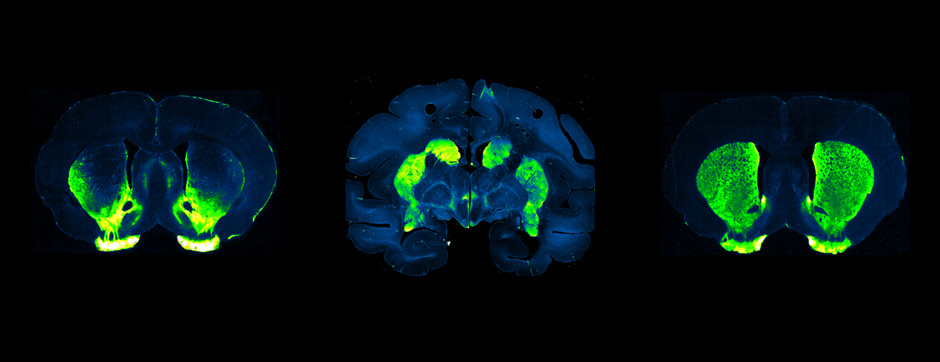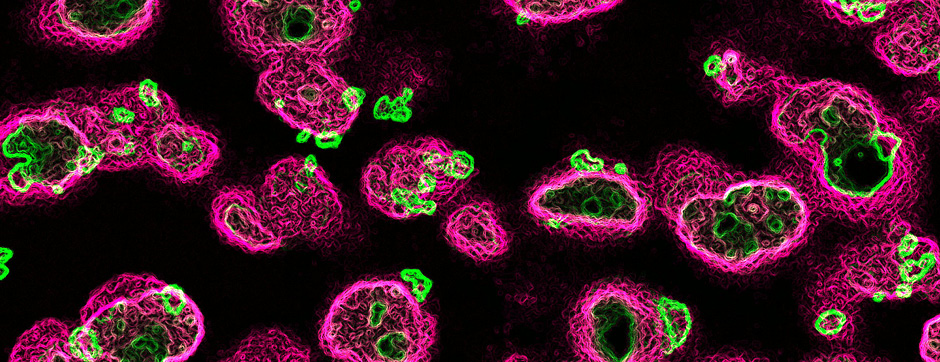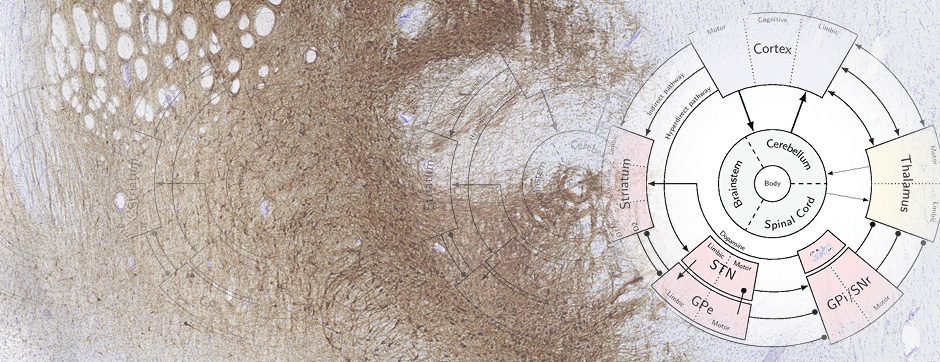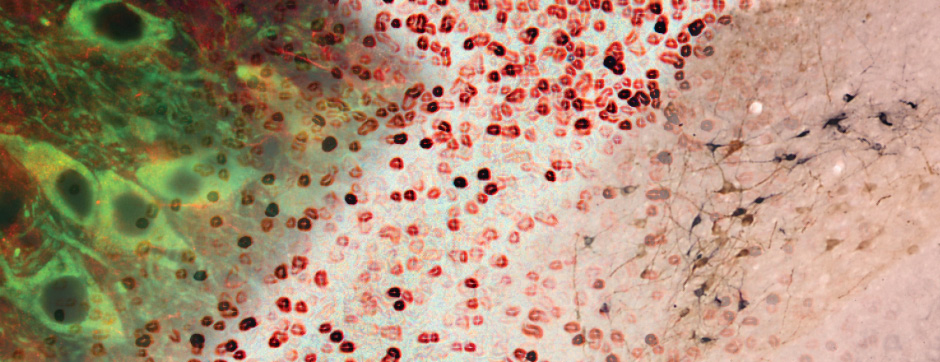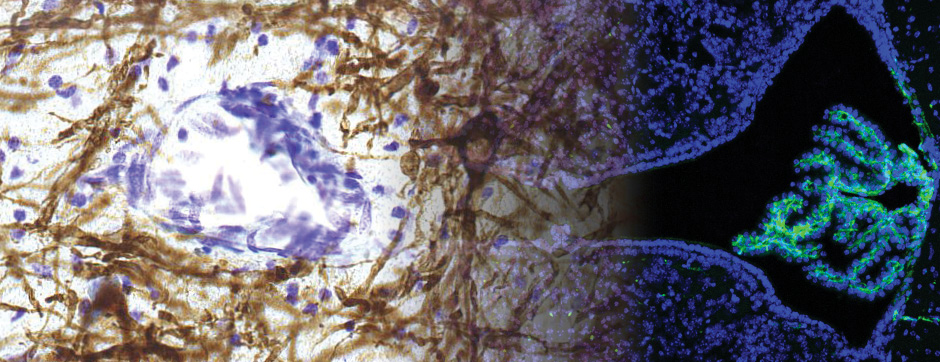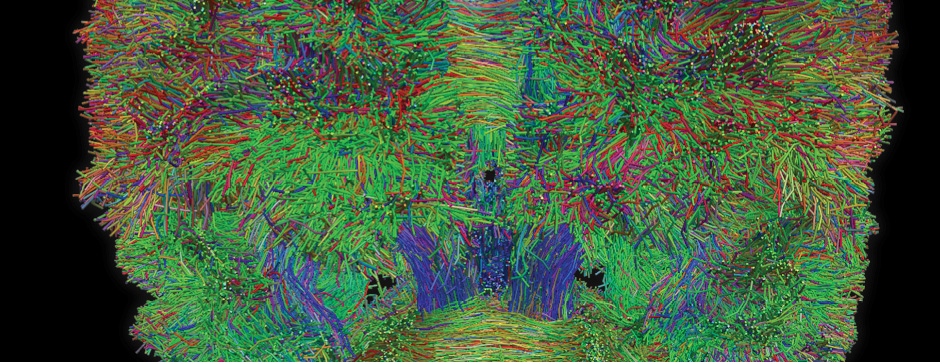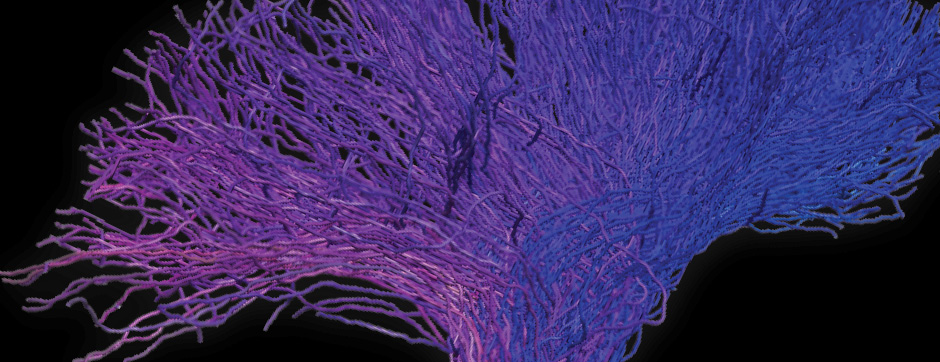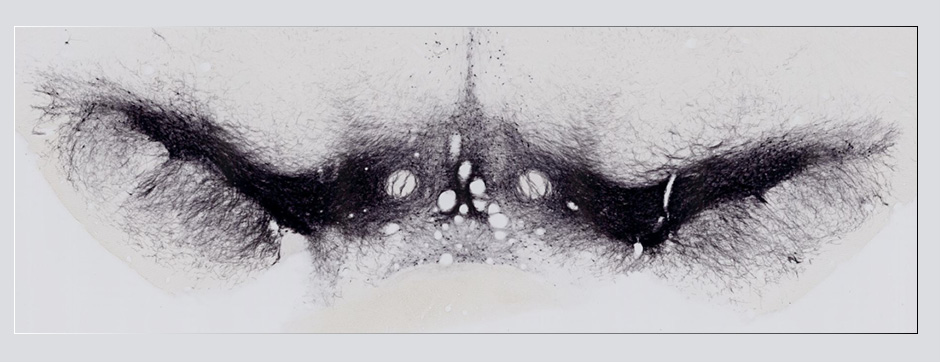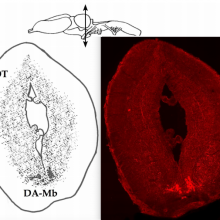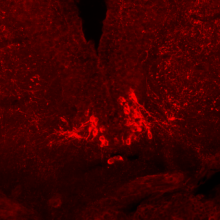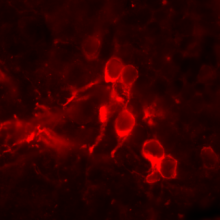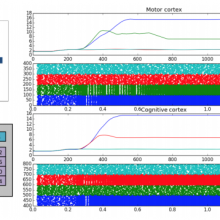 Team 7
Team 7
Computational Neuroscience
ALEXANDRE Frédéric (INRIA Research Director) HINAUT Xavier (INRIA Researcher) VIEVILLE Thierry (INRIA Research Director) BERNARD Paul (Ingeneer - Technician) DEEPAYAN Das (Ingeneer - Technician) ANDIRANTSOAMBEROMANGA Maeva (PhD student) BENDI-OUIS Yannis (PhD student) FONTAINE Lucie (PhD student) PESQUET Baptiste (PhD student)
Research subject
We design systemic computational models of the brain in order to explore and understand cognition, with a special emphasis on learning & behavior. Our models range from very precise bio-physical models (e.g., Hodgkin-Huxley) up to high-level representations (e.g., ontologies) organized around 4 main axes of research.
- Decision Making and Cognitive control
Our work on decision making and cognitive control is based on the core idea that they result from the interaction of several systems of memory and brain structures as opposed to the idea of a single structure that would be the sole responsible for a given behavior. More precisely, we aim at explaining the interacting contributions of the basal ganglia, the prefrontal cortex and the hippocampus for different scenarii of decision making and cognitive control.
- Language processing
One of our long-term ambitions is to make a biologically plausible model of sentence processing and production: the model should be dynamic, grounded, hierarchical and use action-perception mechanisms. Important perspectives are to fit the model to experimental data of healthy and pathological language functions and to explore how it can be embodied in robots in order to model how the brain of children learns to ground, in a developmental scheme, the semantics at various levels of symbol abstraction.
- Abstract & symbolic knowledge
When modeling the brain engaged in ill-defined complex open-ended problem solving tasks, the state space can no more reasonably be enumerated (as with, e.g., Markov decision processes used in classical reinforcement learning) but must be specified with some more structured and symbolic representation. This includes representing prior knowledge such as abstract concepts emerging from sensorimotor representations, for instance affordances and intuitive physics. We hypothesize that computational formalism used in knowledge formalization, such as ontologies, is a good candidate to address such a challenge.
- Machine learning
Even though our primary domain is computational neuroscience, we regularly contribute new machine learning algorithms that derive from our computational neuroscience models. In that regards, we designed and maintain ReservoirPy (https://github.com/reservoirpy/reservoirpy) which is a simple user-friendly library based on Python scientific modules. It provides a flexible interface to implement efficient Reservoir Computing (RC) architectures with a particular focus on Echo State Networks (ESN).
Latest publications
Criteria : Author : "nicolas-p-rougier;frederic-alexandre;xavier-hinaut;1149577", Publication type : "('ART')"
Number of occurrences founded : 111.
- titre
- Deep Neural Networks and Brain Alignment: Brain Encoding and Decoding (Survey)
- auteur
- Subba Reddy Oota, Zijiao Chen, Manish Gupta, Bapi Raju Surampudi, Gaël Jobard, Frédéric Alexandre, Xavier Hinaut
- article
- Transactions on Machine Learning Research Journal, 2024
- identifiant
- hal-04906035
- titre
- « ChatGPT m’a dit que… » : l’illusion de la discussion avec l’IA nous mène à l’erreur
- auteur
- Frédéric Alexandre
- article
- The Conversation France, 2024
- identifiant
- hal-04702426
- titre
- A dynamical computational model of theta generation in hippocampal circuits to study theta-gamma oscillations during neurostimulation
- auteur
- Nikolaos Vardalakis, Amélie Aussel, Nicolas P. Rougier, Fabien B Wagner
- article
- eLife, In press, 12, ⟨10.7554/eLife.87356.3⟩
- identifiant
- hal-04383365
- titre
- Comment fonctionne ChatGPT ? Décrypter son nom pour comprendre les modèles de langage
- auteur
- Frédéric Alexandre
- article
- The Conversation France, 2023
- identifiant
- hal-04156226
- titre
- De Cambridge Analytica à ChatGPT, comprendre comment l’IA donne un sens aux mots
- auteur
- Frédéric Alexandre
- article
- The Conversation France, 2023
- identifiant
- hal-04156230


